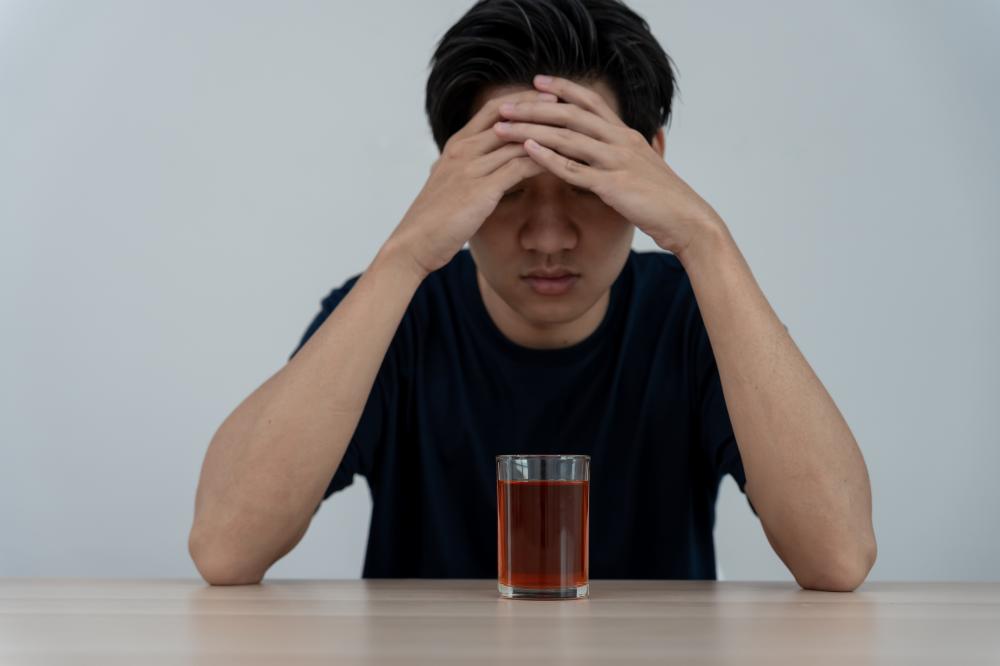
Personal Stories of Struggle and Redemption
In Somers Point, the journey through alcohol addiction is as varied as the individuals experiencing it. From young adults grappling with newfound independence to seasoned professionals battling stress, the spectrum of those affected is wide and profound. These personal narratives often culminate in a moment of clarity where individuals recognize the need for change, sparking a search for effective treatment options.
At Park Bench Recovery, we’ve seen countless triumphs. One client, Sarah, shares, “I was at my lowest, feeling utterly lost, when I found Park Bench Recovery.” Her story is a testament to the power of integrated support systems, emphasizing that no matter how dire the situation seems, there’s always a path forward. Such testimonials underscore the center’s commitment to personalized care and relentless support during recovery.
The Core Philosophy at Park Bench Recovery
Park Bench Recovery operates on a belief in holistic, compassionate care designed to facilitate long-term recovery. By offering a continuum of care from Partial Hospitalization Programs (PHP) to flexible Outpatient (OP) settings, they ensure individuals receive support tailored to their unique needs. This flexibility allows for treatment plans that evolve as clients progress on their recovery journey.
Crucial to their philosophy is the integration of clinical counseling with a strong focus on community engagement. By aligning with local community needs and family dynamics, Park Bench Recovery creates a nurturing environment conducive to healing and growth. The emphasis on community is not just about external support–it’s about building a network that stands as a pillar of strength long after formal treatment concludes.
Effective Therapies for Alcohol Addiction
Park Bench Recovery employs a variety of therapeutic strategies to address alcohol addiction, ensuring a comprehensive approach to treatment. Among these are Cognitive Behavioral Therapy (CBT) and Dialectical Behavior Therapy (DBT), both crucial for helping individuals identify and modify destructive thought patterns and behaviors. These therapies promote self-awareness and equip clients with coping strategies essential in maintaining sobriety.
Another cornerstone of treatment is Motivational Interviewing, a client-centered counseling style aimed at enhancing motivation to change. By focusing on the individual’s own goals and the discrepancy between their current situation and desired outcomes, therapists encourage self-efficacy and empowerment. This, in combination with holistic and recreational therapies, helps foster a well-rounded recovery that addresses both mental and physical health.
Recovery Therapy and Holistic Therapy offer additional layers of support. By incorporating elements such as mindfulness and stress management, these therapies contribute to a balanced lifestyle that aids in long-term recovery. At Park Bench Recovery, such diverse therapeutic offerings are not just options but integral parts of a personalized treatment plan.
Community Support and Family Involvement
Recovery is not a solitary journey, which is why Park Bench Recovery places significant importance on involving families and integrating community resources. This approach recognizes that alcohol addiction impacts not just the individual but also their loved ones. Family therapy sessions are encouraged, allowing for healing and understanding to occur within the family unit.
By working closely with community organizations in Somers Point, Park Bench Recovery ensures that clients have access to broader support networks. These connections can be crucial in providing ongoing support and resources, making it easier for clients to remain engaged and motivated during their recovery process. When families and communities come together, they create a supportive platform that fosters long-term success.
Navigating the Challenges of Recovery
Recovery from alcohol addiction is a complex and challenging process, often involving setbacks and triumphs. At Park Bench Recovery, the journey is viewed as a transformative experience, where each step, no matter how small, is a victory. Clients are encouraged to view challenges as opportunities for growth rather than insurmountable obstacles, fostering resilience and adaptability.
Essential to navigating these challenges is the creation of a solid relapse prevention plan. This plan includes strategies for managing triggers, maintaining healthy routines, and seeking help when needed. Park Bench Recovery’s professional team is dedicated to providing ongoing support to help each client establish and follow through with their individual relapse prevention strategies.
Alcohol Addiction Treatment Somers Point Programs
Park Bench Recovery offers a robust array of alcohol addiction treatment programs in Somers Point, designed to meet varied individual needs. Their Partial Hospitalization (PHP) offers intensive care for those requiring structured, daily support while Intensive Outpatient (IOP) provides a more flexible schedule for those balancing recovery with everyday life. These programs are complemented by an Outpatient (OP) option, ideal for individuals transitioning towards independence as they continue their journey.
The programs are designed with a client-focused approach, ensuring that each individual receives the level of care best suited to their stage in recovery. The adaptability of these programs allows each person to transition between levels of care as dictated by their progress, offering a seamless continuum of treatment that supports long-term recovery.
Insights from Experts and Clinicians
The experienced team at Park Bench Recovery brings a wealth of knowledge and dedication to the treatment process. These professionals are not only equipped with the clinical skills necessary for effective treatment but also possess a deep empathy for those they serve. This combination of expertise and compassion is often cited by clients as a pivotal factor in their successful recovery.
Clinicians emphasize the importance of creating a non-judgmental, safe space where clients feel comfortable expressing themselves. Such an environment fosters trust and openness, allowing for more effective therapy outcomes. The clinical team’s commitment to ongoing education ensures they remain at the forefront of addiction treatment advancements, consistently integrating new insights and techniques into their practice.
Resources and Education at Park Bench Recovery
Education plays a vital role at Park Bench Recovery, not just for clients but also for their families and the community. By providing resources on their blog, Park Bench Recovery empowers individuals to better understand the complexities of addiction and mental health. These resources cover a wide range of topics, from understanding the science behind addiction to practical guides on navigating treatment options and maintaining recovery.
Clients and families have access to workshops and seminars designed to demystify the treatment process and provide practical tools for managing daily challenges. This emphasis on education reflects Park Bench Recovery’s belief that knowledge is a powerful tool in fostering empowerment and sustaining recovery. By equipping individuals with information, they are better prepared to make informed decisions and advocate for their needs.
Park Bench Recovery’s commitment to education and resources ensures that clients are not only supported throughout their treatment but also have access to ongoing learning opportunities beyond their time at the center.

Which is considered the most effective treatment for alcoholism?
When it comes to treating alcoholism, there’s no one-size-fits-all solution. However, evidence suggests that integrated treatment approaches combining medical, therapeutic, and community support elements tend to yield the best outcomes. At Park Bench Recovery, we emphasize a holistic model that includes robust clinical counseling, cognitive therapies, and community support systems. By tailoring treatment to the individual’s specific needs, we address both the physical dependency and emotional drivers of addiction, facilitating long-term recovery. Have you considered how a tailored approach might better fit your personal journey if generic programs haven’t worked for you?
What is the most widely used program for treating alcoholism?
Alcoholics Anonymous (AA) is perhaps the most well-known and widely used program for treating alcoholism. Its 12-step approach has helped millions worldwide achieve sobriety. However, at Park Bench Recovery, we recognize that AA might not suit everyone. Therefore, we offer diverse programs like Partial Hospitalization (PHP) and Intensive Outpatient (IOP) programs that provide structured support and flexibility. This integrative strategy, combined with personalized care, often leads to more sustainable recovery. Have you explored community support options that align with your personal beliefs and lifestyle?
What are five types of therapy that can be used to treat alcoholism?
Various therapeutic modalities can effectively address alcohol addiction. At Park Bench Recovery, we implement:
- Cognitive Behavioral Therapy (CBT) – tackling destructive thought patterns.
- Dialectical Behavior Therapy (DBT) – teaching emotional regulation and distress tolerance.
- Motivational Interviewing – enhancing an individual’s drive to change.
- Holistic Therapy – focusing on mindfulness and overall well-being.
- Recovery Therapy – supporting a balanced and healthy lifestyle.
These therapies work in synergy to help individuals develop healthier coping mechanisms and resilience. Which of these therapeutic approaches resonates with you the most?
What are the 4 stages of addiction?
Understanding the progression of addiction can provide valuable insights into treatment. Generally, the four stages include:
- Experimentation – initial use, often social.
- Regular Use – established patterns without significant negative consequences.
- Risky Use – behaviors that lead to negative consequences, like driving under the influence.
- Dependency – physical and psychological craving, inability to stop despite harm.
At Park Bench Recovery, our programs cater to individuals at various stages, ensuring that treatment is relevant and effective. What stage have you or a loved one found most challenging to navigate?
How do community support and family involvement affect recovery?
Community support and family involvement are critical in sustaining recovery. At Park Bench Recovery, we prioritize integrating these elements into our treatment plans. Family therapy sessions help repair relationships and strengthen family units, while community partnerships offer additional resources and support networks. By involving the broader social environment, we help create a supportive framework that continues beyond formal treatment. Have you considered how involving loved ones might alter your recovery experience for the better?
